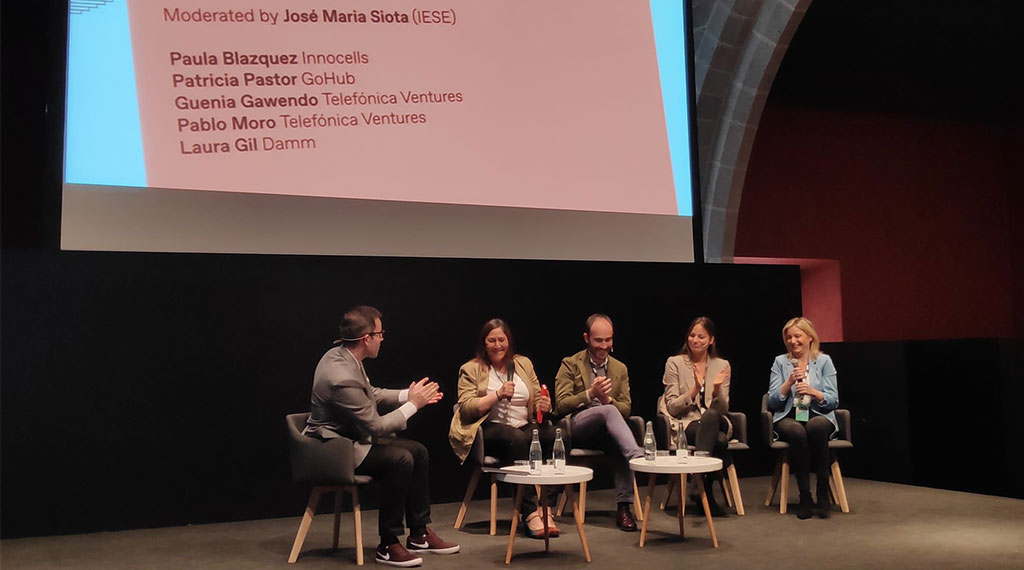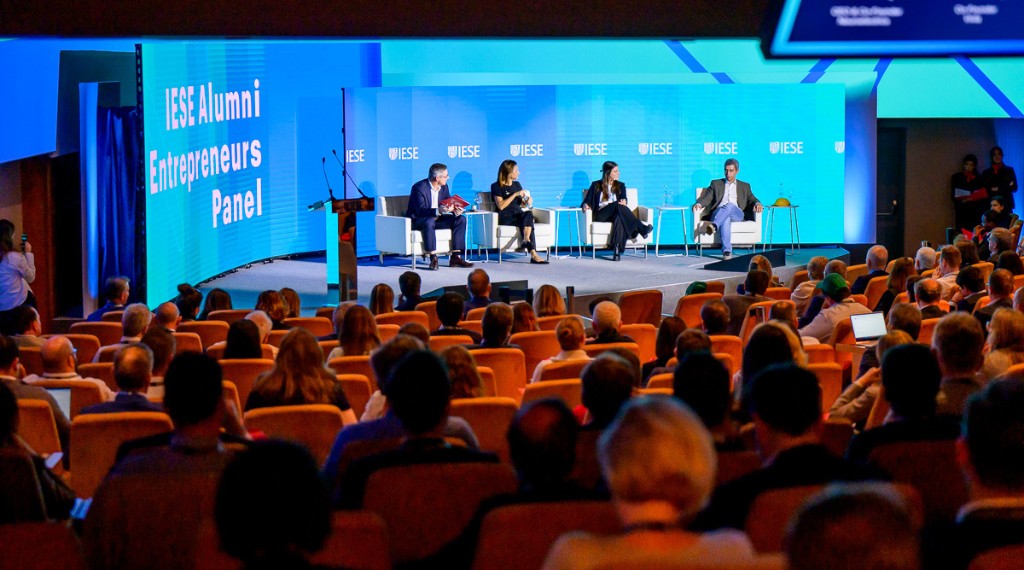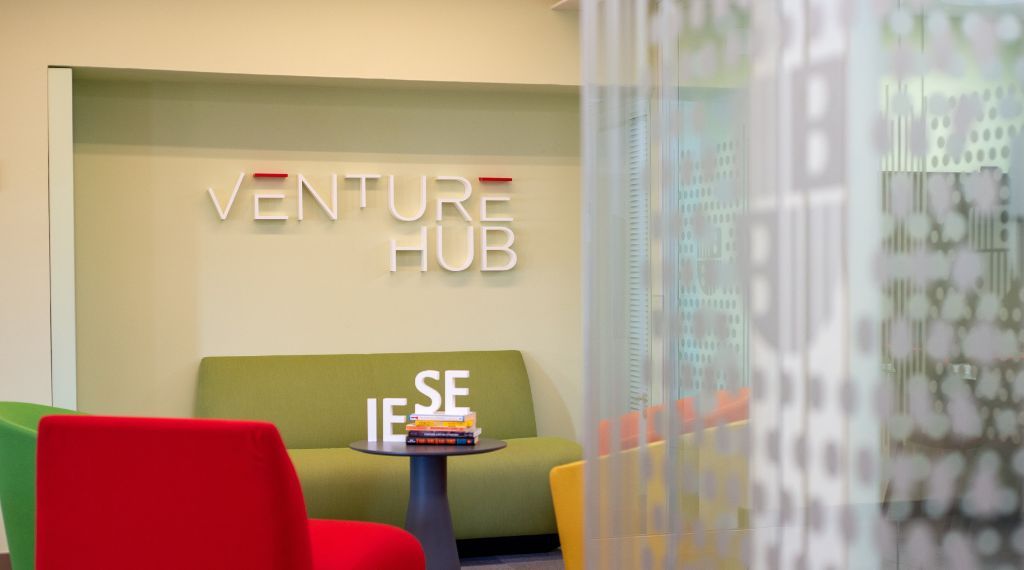Stories
Entrepreneurial spirit
IESE supports Tech Spirit Barcelona week with corporate venturing and innovation events
Josemaria Siota (left), executive director of IESE’s Entrepreneurship and Innovation Center, moderates a panel on corporate venturing.
February 26, 2020

How can corporations innovate and how can startups thrive?
This question was at the heart of a panel discussion held Tuesday as part of Tech Spirit Barcelona, a series of events around the city centered on entrepreneurship and innovation.
When the Mobile World Congress, one of the world’s biggest technology and telecom conferences, was cancelled earlier this month amid fears of the spread of the coronavirus, it delivered an unexpected blow to Barcelona. Alongside the MWC, Barcelona also hosts the 4YFN conference, which focuses specifically on startups.
But after the cancellations, the entrepreneurial community rallied to create the week-long Tech Spirit Barcelona. IESE has supported the efforts with panels and networking events throughout the week.
One of those was Tuesday’s panel discussing corporate venturing, or the ways in which corporates engage with startups, and moderated by Josemaria Siota, executive director of IESE’s Entrepreneurship and Innovation Center. They discussed what factors are holding back entrepreneurship and innovation, as well as financing mechanisms available.
For Laura Gil, head of digital transformation at Damm, each company needs to set its own path to innovation. “[Corporates] must generate their own innovation ecosystem. Stakeholders — and these might also be the providers — can contribute a lot, and this relationship needs to be fostered.”
Pros and cons of financing options
The speakers explored two financing avenues open to startups — corporate investment and funds. These different investment tools have opposing strategies, and subsequently come with pros and cons.
Investing via a fund may be more tactical, the panel agreed. However corporate investment implies a company’s direct involvement with a startup, meaning fewer intermediaries and closer working contact.
“One major advantage of corporate investment is that you have direct access to industry,” said Paula Blazquez, of InnoCells — Banco Sabadell’s hub for new digital ventures. “In our case, as a bank, we offer direct access to fintech.”
There is a current trend towards corporate investment. Blazquez reported that InnoCells has tripled its funds available this year compared to last.
Ultimately, the best path might come down to the particular phase the startup is in, as pointed out by Pablo Moro of Telefónica Ventures. The venture invests either directly in startups or through a network of leading funds in key markets with a view to building strategic partners aligned with Telefónica’s global strategy.
He said: “During early stages, private financing opens doors. During mature stages, when you have a solid product offering, corporates might be the best way to go.”
A criticism sometimes levelled at corporate investors is that they are slow movers. But let’s not tar them all with the same brush, warned Moro. “There are corporations and corporations. Some maximize the brand reach better, while others excel at geographical exclusivity, or opening up a particular market.”
Yes, he said, corporates still need to improve how they lessen the number of steps towards the end client, and work on processes for pushing forward more effectively.
Patricia Pastor of GoHub, Global Omnium’s open innovation hub, added, “Corporates may be slower but technological processes are inherently slow. It’s balanced out with the international impact, solvency and backup corporations offer.”
The lure of deep tech
Slow technological processes are especially inherent to deep tech. The panel talked at length about this genre of startup, defined by its highly specialized tech. There’s been a boom in deep tech funds worldwide, but in Europe they have had a hard time marketing their discoveries.
This is partly because they require large investments to achieve commercial success and lengthy R&D.
But all these are just teething troubles in the eyes of Pastor, whose company helps deep tech startups become game changers in water tech, industry 4.0 and smart cities. “Deep tech will transform technologies and markets — it’s the new black,” she said.
Leading IESE alumni are also taking part in events, including Timo Buetefisch (MBA ’04) of eCooltra, Carlota Pi (EMBA ’09) of Holaluz, Privalia’s Lucas Carné (MBA ’99) and Ana Maiques (AMP) of Neuroelectrics.


